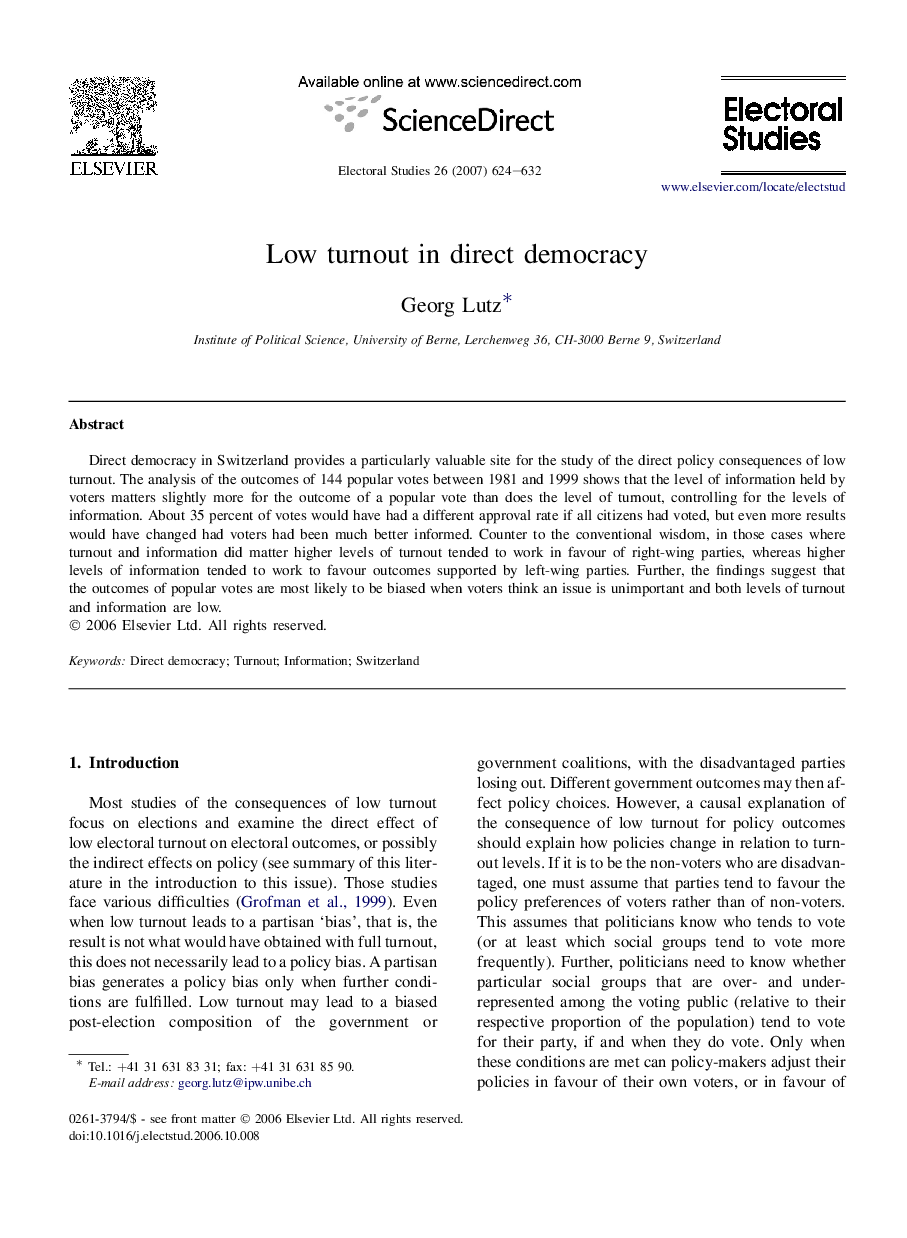| Article ID | Journal | Published Year | Pages | File Type |
|---|---|---|---|---|
| 1052547 | Electoral Studies | 2007 | 9 Pages |
Direct democracy in Switzerland provides a particularly valuable site for the study of the direct policy consequences of low turnout. The analysis of the outcomes of 144 popular votes between 1981 and 1999 shows that the level of information held by voters matters slightly more for the outcome of a popular vote than does the level of turnout, controlling for the levels of information. About 35 percent of votes would have had a different approval rate if all citizens had voted, but even more results would have changed had voters had been much better informed. Counter to the conventional wisdom, in those cases where turnout and information did matter higher levels of turnout tended to work in favour of right-wing parties, whereas higher levels of information tended to work to favour outcomes supported by left-wing parties. Further, the findings suggest that the outcomes of popular votes are most likely to be biased when voters think an issue is unimportant and both levels of turnout and information are low.
